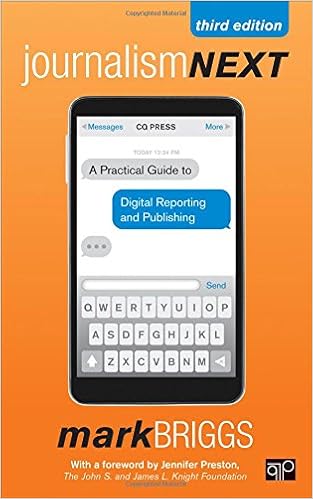Smaller may be better.
![]() The Suburban Newspapers of America held a one-day workshop and pushed through rapid-fire content from almost two dozen speakers in New Orleans today. The smaller newspapers that make up this organization are fighting the same battle as all printed media, but appear to be better positioned to withstand the economic storm that has imperiled large- and medium-sized dailies.
The Suburban Newspapers of America held a one-day workshop and pushed through rapid-fire content from almost two dozen speakers in New Orleans today. The smaller newspapers that make up this organization are fighting the same battle as all printed media, but appear to be better positioned to withstand the economic storm that has imperiled large- and medium-sized dailies.
As a recent article from the Wall Street Journal highlights, community newspapers are being bought and sold as if they’re still worth something.
Longtime newspaper executive Michael Schroeder in January bought two Connecticut dailies on the verge of closure. Pennsylvania publisher Richard Connor says he is close to acquiring a group of Maine papers, including the state’s largest daily.
Last month, according to a person familiar with the matter, Tennessee Valley Printing Co., a family-owned publisher of smaller papers, agreed to buy a paper in Florence, Ala., for about $12 million.
Advertising consultant Mike Blinder opened the day by saying he loves this market because local advertisers need help. He also told the group of 40-50 newspaper managers that “most ads on newspaper web sites suck” and that small- and medium-sized businesses are convinced that online and digital will save their business. They just don’t know how.
Smells like opportunity to me. (Blinder’s slides can be found here if you don’t mid filling out a form.)
“Hyperlocal” is a hot topic these days, but as Carl Schindler told the audience: “That’s you.”
It is my impression that community newspapers have done a better job connecting to audiences and advertisers. As ambitious journalists climbed ladders, jumping to the next bigger paper (I did this, too), the reporters and editors who stayed developed an trust and social capital in the community that comes across in the journalism. The same goes for the advertising, which benefits from the absence of quarterly goal pressure felt by publicly traded companies.
The argument that “newspapers” are dying (or dead) needs more nuance. Big-city, corporate dailies are obviously in trouble, but publishers without huge debt loads are a different animal. Peter Conti, an analyst with Borrell & Associates, affirmed this view saying his firm’s data tell different stories for big papers (bad) and small papers (good).
I look forward to discussing this idea with workshop attendees tonight and those coming to town for the E&P Interactive Media conference starting tomorrow. (I’ll be tweeting and blogging it for the next two days.) I’ll report back if hear cofirmation or a different story altogether.
 Mark Briggs
Mark Briggs  Posted in
Posted in 




